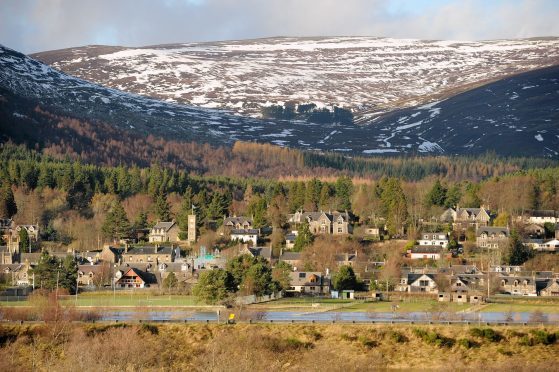John Major’s government diverted cash from the Highlands to try to boost dwindling Conservative support in south-east England, it has been confirmed.
Confidential papers from the National Archives have today revealed how ministers overhauled the government’s key £300 million-a-year economic support fund in the wake of losses at the 1992 general election.
Badenoch in the Highlands was one of the only parts of Scotland to lose its “assisted areas” status as a result of the shake-up, as London was included in the programme for the first time.
But newly-released documents have revealed that officials also considered axing aid to huge swathes of the rest of the region, including Wester Ross, Skye and Lochaber, as part of initial proposals.
At the time, ministers denied claims from opposition parties that it was an exercise in “gerrymandering” and “a vain attempt to prop up crumbling Tory support” in the south-east.
However, the memos appear to confirm that a major motivating factor for the switch was to shore-up support in marginal Conservative seats in the party’s southern heartlands.
In early 1993, ministers began discussing a review of the existing Assisted Areas Map, which was produced to show which communities could receive financial backing for job-creation schemes in a way which complied with EU rules on state support.
The map not been redrawn since 1984, and a study had highlighted how the vast majority of unemployment was in England but that the nation benefited from 42% of Regional Selective Assistance spending on job-creation schemes.
Initial papers outlined that there was a question over whether parts of London should be included in the Assisted Areas Map, amid warnings that doing so “would have a big consequential effect for Scotland and Wales”.
Despite the concerns, Employment Secretary Gillian Shephard highlighted the political need to funnel cash to former Tory seats in a letter to colleagues on March 12, 1993.
She wrote: “The greater part of Regional Selective Assistance goes to areas where Labour seats predominate.
“Unemployment in London and the South East is now affecting our own supporters in Conservative seats.
“Eleven of the top 50 marginal seats after the 1992 General Election are in London and the South East and five are in Greater London.
“The London seats which the Conservatives lost in 1992 are all in areas where unemployment has risen to between 15% and 20%.
“If we wish to retain a Conservative government, which is essential for the prosperity for the whole country, these are facts for consideration.”
On May 27, 1993, a new map proposed by Michael Heseltine, then president of the Board of Trade, was distributed among Cabinet members, suggesting the removal of assistance to Badenoch, Wester Ross, Skye and most of Lochaber, among other areas.
However, the plans were toned down when the final map was eventually published in the summer of that year, with only Badenoch cut out from the Highlands, and the Thurso area added in.
Last night, Skye, Lochaber and Badenoch MSP Kate Forbes said: “In the Highlands of the early 90s, young people were leaving in droves, crofters and farmers were struggling and infrastructure cried out for investment.
“To consider diverting funds from a fragile, rural area like the Highlands and Islands to shore up support in the wealthy south-east is contemptible.”
